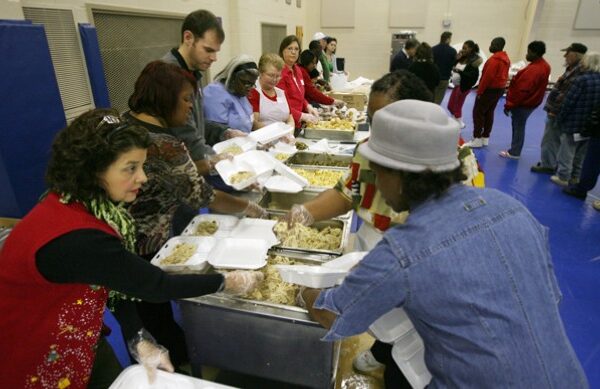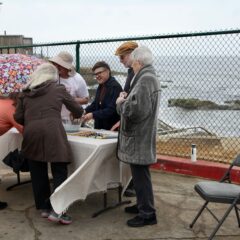Want to see interdisciplinary activism at its best? Look at food justice.
Seeking to address the inequities in the food system from production to consumption, the movement creates ties together the concerns of environmentalists, the labor movement, animal rights activists, health advocates, and naturally, foodies. Many faith-based allies — especially those who are compelled by their values — have also joined this network through working to blur the line between nourishing souls and nourishing bodies.
In Los Angeles, local faith-based organizations have incorporated food justice issues into their primary areas of activism. IKAR, a Jewish spiritual congregation, and the Progressive Jewish Alliance, a Jewish social justice organization, have partnered to provide residents of food deserts (low-income areas of the city lacking quality grocery stores and limited in public transportation) in Los Angeles with transportation to the nearest supermarkets for fresh and healthy foods. Reaching out to communities that differ both culturally and economically from their own, such as the predominantly Latino constituency of Boyle Heights, seems to also be a particular hallmark of these efforts.
PJA has also partnered with other faith (CLUE and IKAR) and secular organizations (LAANE and UFCW) to beef up the efforts to bring grocery jobs and access to fresh foods across the city and increase awareness amongst Angelenos.
Five miles southeast of USC, the UMMA Community Clinic, a nonprofit serving South Los Angeles, has recently announced a partnership with John C. Fremont High School and the Los Angeles Neighborhood Land Trust to open a new clinic on the school grounds and a 1.5 acre community garden and farming site. The initiative aims to serve at risk students and community residents and to promote healthy eating habits through educational programs centered around growing food.
Secular organizations have found a way of connecting their efforts to faith as well. A notable example is L.A.-based Food Forward, which organizes volunteers to harvest thousands of pounds of produce from private properties. The freshly picked produce is then distributed to local organizations serving Angelenos in need. Food Forward describes this work as “gleaning,” which for Christians and Jews hearkens back to the biblical passage commanding adherents to leave a portion of their fields unharvested to provide for the hungry. This concept, one may argue, was an early form of food justice.
The alliances between faith-based and secular organizations are likely to bode well for the food justice movement. Faith-based organizations’ ability to fuse a moral framework around social justice issues that are oft seen as secular and left leaning (or just plain hippie), could very well connect food justice to the millions of Americans who belong to congregations all across the states.
Networks and relationships between faith-based and secular organizations around this issue have sprouted and multiplied across the country. These potent partnerships are a refreshing break from the so-called culture war. Even the White House, under First Lady Michelle Obama’s leadership, has leveraged this strategy and produced a toolkit for faith-based congregations and organizations to join her Let’s Move! Campaign targeting the issue of childhood obesity.
All in all, this is is definitely a growing movement and one well worth watching. We’ll soon learn if and how this movement is able to able to change the culture and politics of food in America, congregation by congregation, city by city.
Photo from the Anderson Independent Mail.
Sumaya Abubaker is a contributing writer with the USC Center for Religion and Civic Culture.







